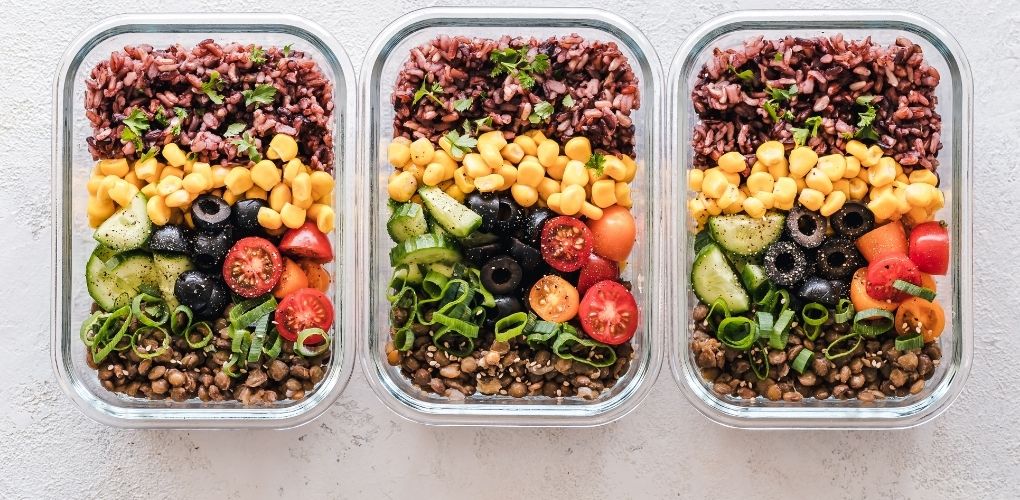
Heart disease is the number one killer in the United States, and it has not changed much in nearly a century. It is possible to prevent heart disease by adopting healthy lifestyle habits. Here are just some. Consuming fruits and vegetables is good for your heart. Another great way to lower your chance of developing heart disease is to quit smoking. Exercise is an excellent way to lower blood pressure. What are the best practices to avoid heart disease and prevent it?
Exercise lowers your risk of developing heart disease

While many people know that exercise can help lower your risk of heart disease and add years to your life, they may not know how much exercise they need. You can use exercise as an insurance policy to protect your heart. Even a single exercise session can provide protection for your heart for up to two hours. The American Heart Association recommends exercising at least 30 mins per day.
Vegetables and fruits are good for your heart.
It can be hard to overlook the high levels cholesterol and saturated oils in processed foods. But fruits and vegetables are the most important food you can consume. One cup of raw broccoli contains significant amounts of beta-carotene as well many vitamins, including vitamin C. Broccoli can also be added to soups or salads as it is rich in fiber. Cantaloupe and cucumber are also heart-healthy vegetables and fruits.
Stop smoking to lower your chance of getting heart disease
Nicotine is the main component of cigarette tobacco smoke. But other chemicals found in cigarette cigarettes can also damage your heart. Your arteries are damaged by carbon monoxide or tar. Both of these chemicals increase your blood pressure and cause your heart to beat faster. They can also damage your lungs. Other than these, lung cancer can also be caused by smoking. Fortunately, there are many benefits to quitting smoking.
Exercising lowers blood pressure

Regular exercise is the best way to lower your blood pressure. You may not see any changes in your blood pressure for three months. The benefits of exercising last as long as you do it. You can incorporate aerobic exercise into your daily routine by jogging, walking, or riding your bike. You could also lift weights or do high-repetition, low-weight exercises. You can exercise however much you like, depending on your blood pressure and lifestyle.
Get enough sleep to lower your risk for heart disease
Many studies have found a link between poor sleep and cardiovascular disease. Research has shown that sleeping disorders are linked to poor cardiovascular health. People who have a variety of common sleep disorders are more likely than others to develop cardiovascular conditions such as plaque buildup and heart arrhythmias. Certain neurological sleep disorders can also increase the risk of developing cardiovascular disease. For good cardiovascular health, it is important to get enough sleep.
FAQ
How can I lose weight?
People who desire to look great are most interested in losing weight. People desire to lose weight because they want to live longer, feel healthier, and live longer. There are many ways to lose weight. You can choose from cardio training or strength training. Each type of exercise comes with its own set of benefits and drawbacks. For example, if you want to burn calories, then walking would be your best option. However, if you want to build muscle mass, then lifting weights would be the best choice. In this article, we'll discuss how to lose weight and which exercise to choose.
First, you must decide what kind of diet plan to follow when trying lose weight. You don't necessarily need to eat less food; rather, you just need to eat fewer processed foods and avoid junk food. At least 2200 calories is recommended daily. You can lose weight quicker if you reduce your calorie intake. This will make it easier to lose weight.
You can lose weight quickly by getting active. Exercise can help you lose calories and speed up your metabolism. You must combine exercise and a healthy diet to lose weight. When you exercise, you use up energy, and therefore you won't be able to eat as much. Your body will begin to burn fat quicker if you train regularly. Regular workouts can also help you to maintain a healthy lifestyle. They can help you keep fit and prevent conditions such as heart disease, diabetes, hypertension and obesity.
Try to walk as often as possible. Walking can help you burn approximately 500 calories an hour. You can burn about 1500 calories if you walk for 30 minutes each day. Therefore, you will lose 1 pound of fat per week. You can also run/jog for 10 minute. Running burns about 1000 calories per hour. If your goal is to lose 5 pounds in 3 weeks, you should run for 20 minutes three times a week.
In conclusion, the best way to lose weight is to combine exercise with healthy eating habits. You should find a balance of these two elements.
Why exercise is so important to your weight loss goals
The human body is an incredible machine. It was created to move. It's designed to move.
Exercise burns calories and improves muscle tone. This can make you feel more positive both physically and mentally. Exercise is an important part of weight loss.
-
Exercise increases metabolism. When you're active, your body will use energy. Moving makes your heart beat faster and blood flows more quickly to your muscles. Your lungs also absorb oxygen. All of these activities consume energy. You can burn calories more easily by exercising and increasing your metabolic rate. Your body's energy consumption during physical activity is known as the amount of calories burned.
-
Exercise reduces appetite. Exercise can help you lose weight.
-
Exercise builds strength. Muscle tissue is more energetic than fat tissue. So if you build lean muscle mass, you will need less food to maintain your current weight.
-
Exercise releases endorphins. Endorphins, hormones that make you feel happy, are released when you exercise. When you exercise, endorphins are released into your bloodstream. Studies have shown that endorphins can block pain signals reaching your brain. This creates a sense of well being.
-
Exercise increases self-esteem. Exercise regularly leads to higher self-esteem. People who exercise regularly live longer and healthier lives.
Small changes are the best way to lose weight. You can add one of these tips into your daily life today.
Can I eat fruits during intermittent fasting?
Fruits are good for you. They are full of vitamins, minerals as well as fiber, antioxidants and other nutrients. But, they can also contain sugar that can spike blood glucose levels. This can lead insulin resistance and weight increase. If you are looking to lose weight through an IF diet you need to choose low glycemic-index fruits such as oranges, pears, berries and melons.
What effect does intermittent fasting have on my sleep?
Yes, intermittent fasting does affect your sleep. Your hunger hormones can rise if you skip meals. You might wake up every night as a result.
Experts recommend skipping breakfast. Instead, they suggest having a light snack before bedtime.
If you still feel hungry after eating this snack, you may want to eat a small breakfast before going to bed.
Be careful not to overeat. Otherwise, you'll end up gaining weight instead of losing it.
Are there any side effects of intermittent fasting?
There are no known negative side effects of intermittent fasting. But, it is possible to experience minor side effects if you plan poorly.
You might feel irritable if you skip breakfast. Other symptoms include headaches, dizziness and fatigue as well as muscle cramps.
These symptoms typically disappear in a matter of days.
How Much Exercise is Required to Lose Weight?
The amount of exercise needed for weight loss depends on several factors, including age, gender, body type, and how much you weigh. Most people need to exercise at least 30 minutes five days a weeks.
The American College of Sports Medicine recommends 150-minutes of moderately intense aerobic activity every week. It should be spread over three separate days.
For example, if your goal is to lose 10lbs, aim for 300 minutes of moderately intense exercise per week. This includes activities like jogging or running, swimming laps and biking.
Start out with 20 minutes of vigorous physical activity three times weekly if you're just getting started. That could include activities like lifting weights, sprints, jumping rope, or fast walking.
Aerobic exercise helps to build muscle mass and burn calories. Muscle burns more calories than fat does. You may be able to achieve your goal quicker by building muscle and losing fat.
Statistics
- According to Harvard Health, it's estimated that a 155-pound (70-kg) person burns around 167 calories per 30 minutes of walking at a moderate pace of 4 mph (6.4 km/h) (5). (healthline.com)
- According to Harvard Health, it's estimated that a 155-pound (70-kg) person burns roughly 112 calories per 30 minutes of weight training (5). (healthline.com)
- Another study found that 24 weeks of weight training led to a 9% increase in metabolic rate among men, which equated to burning approximately 140 more calories per day. (healthline.com)
- It's estimated that half of all American adults attempt to lose weight every year (1Trusted (healthline.com)
External Links
How To
How to exercise for weight loss
The best way to lose weight is through exercise. Many people don't know how to exercise properly. Cardio exercises should include running, biking, swimming, walking, etc. and strength training exercises like lifting weights, pulling-ups or pushing ups, squats and lunges. The most effective way to lose weight is to combine these two types of exercises together. If you want to start exercising, then try to find some friends who are willing to join you in your journey. You can exercise at a gym or simply walk around the block. It doesn't matter what activity you choose; just make sure you do it consistently. It's very easy to get off track when you first start working out, so don't give up if things aren't going well right away. Keep going!